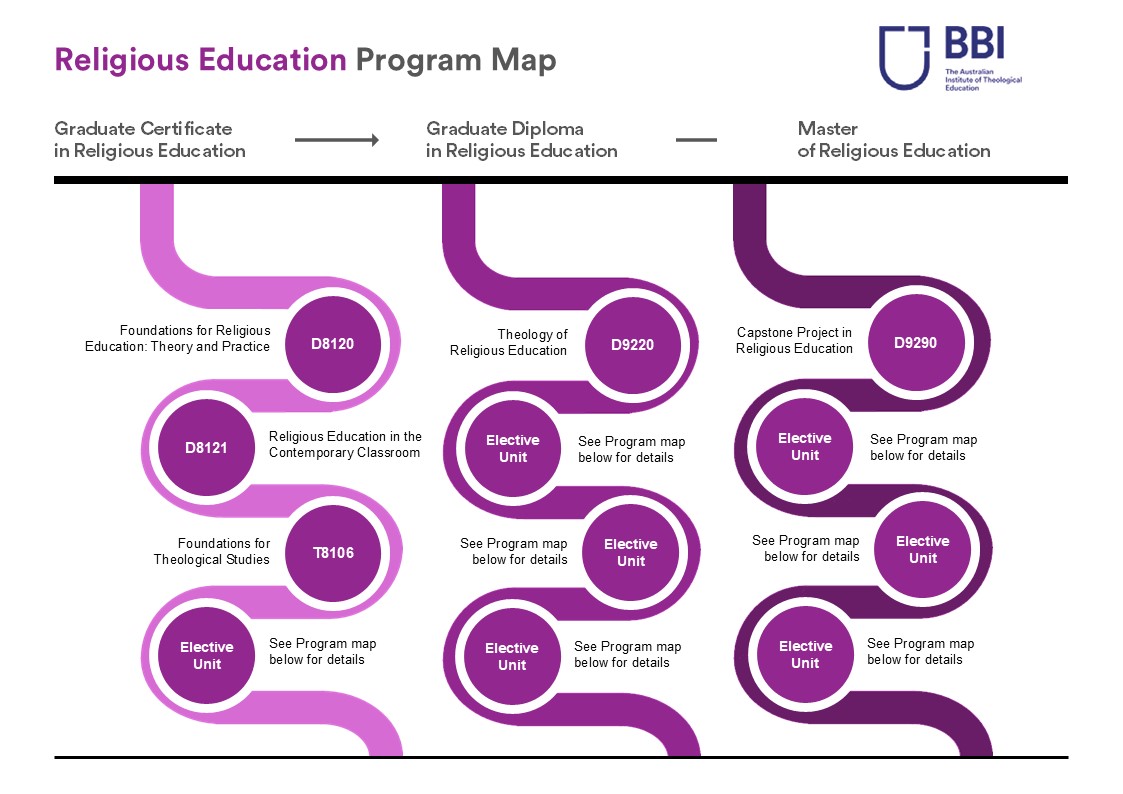Religious Education
BBI-TAITE’s Religious Education offerings allow you to expand in Catholic education with programs to provide you with a clear pathway to teach Religious Education in a Catholic primary or secondary school.
Why Study Religious Education?
Looking to become qualified to teach Religious Education?
BBI-TAITE’s Graduate Certificate and Graduate Diploma in Religious Education will provide you with a clear pathway towards accreditation to teach Religious Education in Catholic primary and/or secondary schools.
In addition, our Religious Education courses feature content firmly linked to everyday work practices in the contemporary classroom and allow you to gain critical skills to develop an effective curriculum in your local contexts.
Who Should Study Religious Education?
- Leaders of spirituality
- Teachers of Religious Education
- Catholics looking to further their faith
- For those seeking to learn more about
More information
Graduate Certificate In Religious Education (36)
The Graduate Certificate in Religious Education aims to assist graduates with a previous degree in education, or a related field, in applying foundational knowledge and skills in various religious education contexts. With a focus on classroom teaching and school leadership, the program integrates professional religious education skills with introductory religious education theory and practice. Upon completing this course, graduates meet the accreditation standards to teach religious education in Catholic schools. As a result, they may be eligible to find employment or promotion in the Catholic education sector.
Course Structure
The Graduate Certificate in Religious Education comprises three compulsory units (27 credit points) and one elective Religious Education unit (9 credit points).
| Category | Requirements |
| Course Length | Six months full-time, or one year part-time equivalent, amounting to 36 credit points. Maximum duration two years. |
| Admission Requirements |
|
| Entry Pathways |
|
| Career Pathway | Click here for information on Religious Education accreditation |
| Credit Transfer |
|
Credit
The Graduate Certificate in Religious Education articulates to the Graduate Diploma of Religious Education, which articulates to the Master of Religious Education. Credit will be granted in higher awards for all units completed within lower awards.
| COMPLULSORY UNITS (3 Units – 27 points) |
| D8120 Foundations for Religious Education: Theory and Practice |
| D8121 Religious Education in the Contemporary Classroom |
| T8106 Foundations for Theological Studies |
Graduate Diploma in Religious Education (72)
The Graduate Diploma in Religious Education aims to provide graduates with a previous degree in education, or a related field, the opportunity to strengthen their knowledge of professional religious education skills, theory, and practice. In addition, the course aims to develop graduates with a particular focus on classroom teaching and school leadership to apply religious education knowledge and skills, including professional practice, in various educational contexts. On completion of this course graduates meet the accreditation standards to teach religious education in Catholic schools. As a result, they may be eligible to find employment or promotion in the Catholic education sector.
Course Structure
The Graduate Diploma in Religious Education comprises four Compulsory units (36 points) and four Core units (36 points), of which two must be selected from a specified list of Religious Education units.
| Category | Requirements |
| Course Length | One year full-time, or two-years part-time equivalent , amounting to 72 credit points. Maximum duration four years. |
| Admission Requirements |
|
| Entry Pathways |
|
| Credit Transfer |
|
Master of Religious Education (108)
The Master of Religious Education aims to provide graduates with a previous degree in education, or a related field, the opportunity to apply an advanced body of knowledge in various contexts for professional practice or scholarship and as a pathway for further learning. The course aims to develop skills to plan and execute a substantial research-based project, capstone experience or a piece of scholarship through the application of relevant research methodologies. In addition, it aims to build capacity for professional reflective practice in a range of religious education contexts.
Course Structure
The Master of Religious Education comprises five Core units (45 points) and seven restricted electives (63 points).
| Categories | Requirements |
| Course Length | One and a half years full-time, or three-years part-time equivalent comprising 108 credit points. Maximum duration six years. |
| Admission Requirements |
|
| Entry pathways |
|
| Credit Transfer and Recognition of Prior Learning |
|
 MY CART
MY CART


